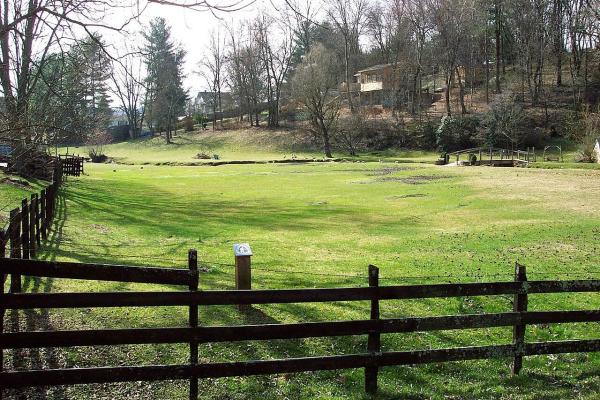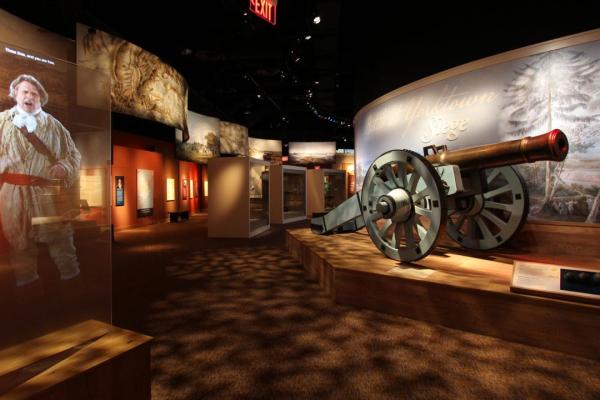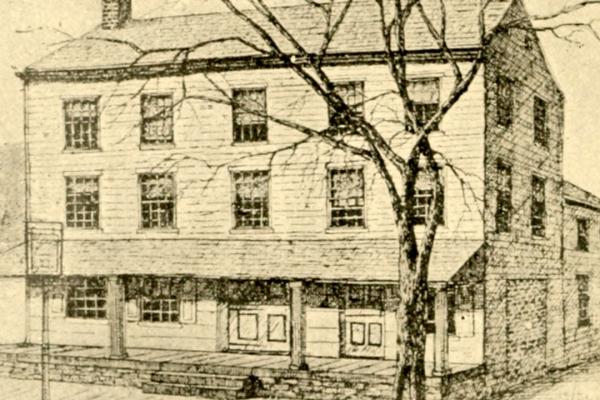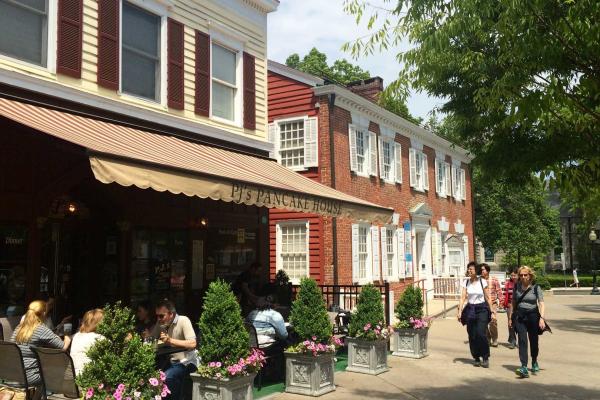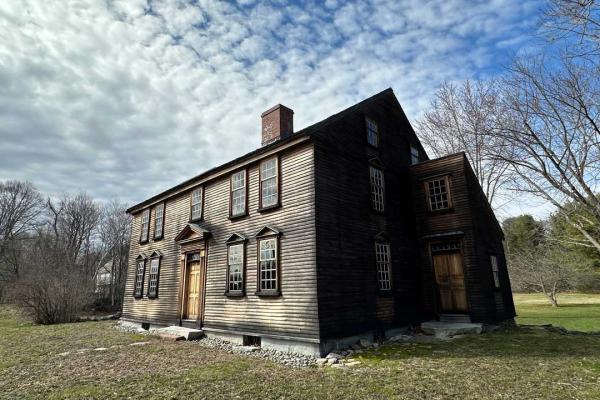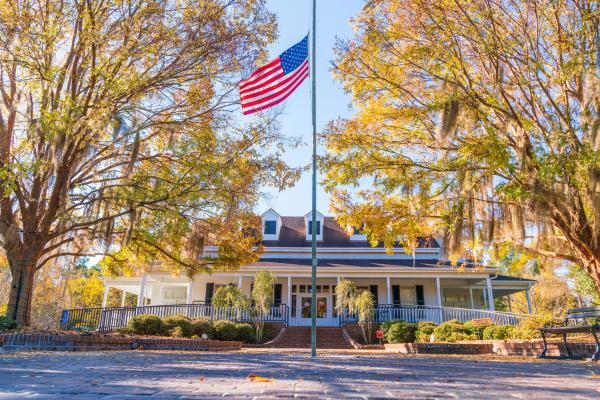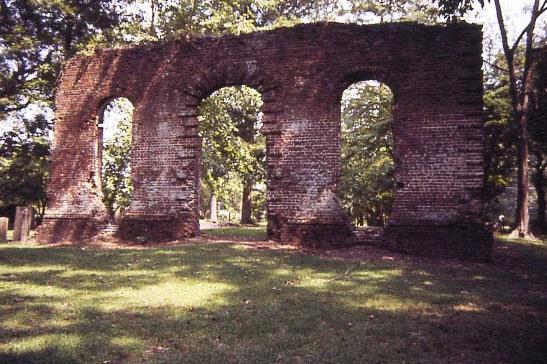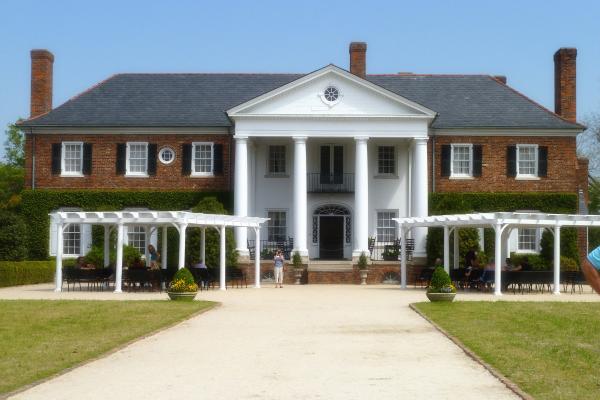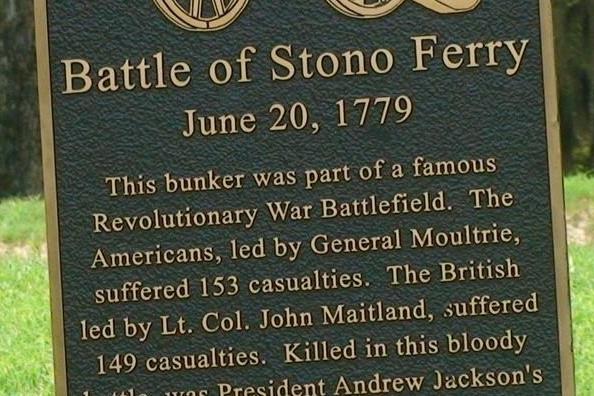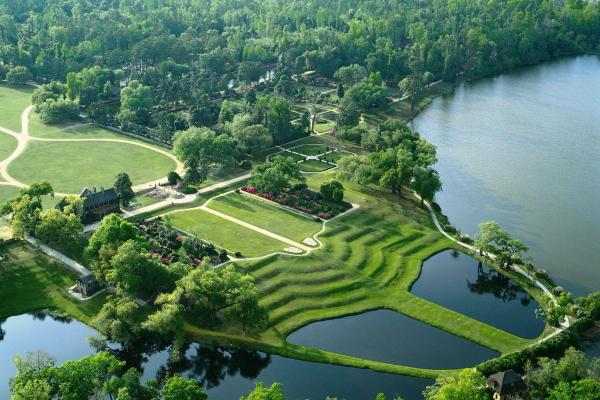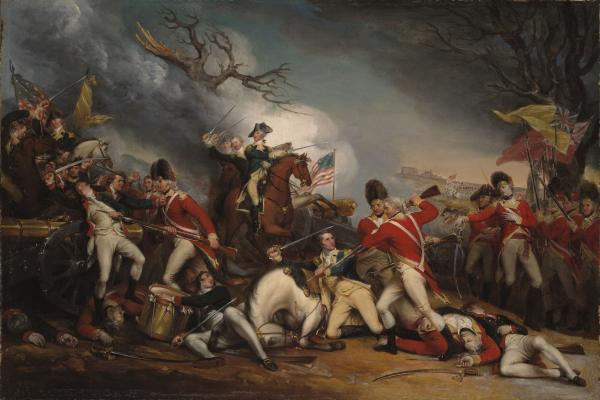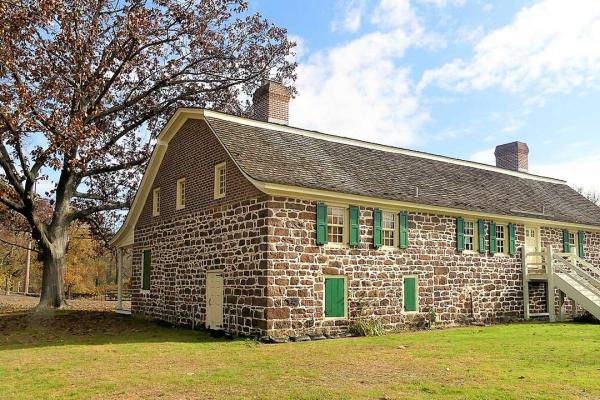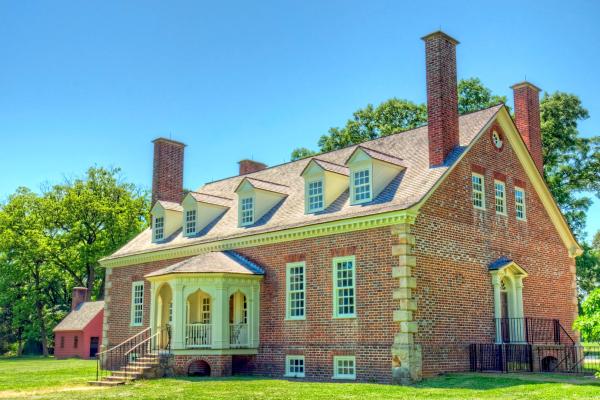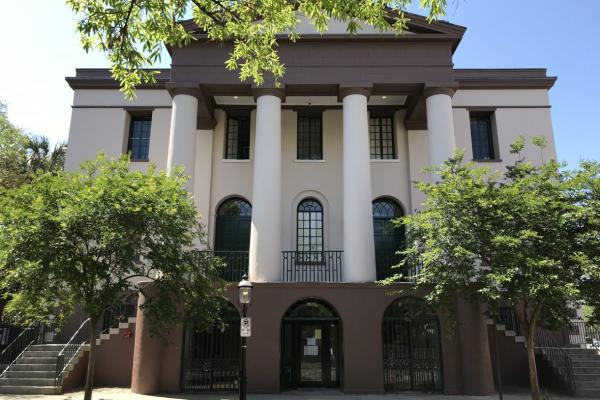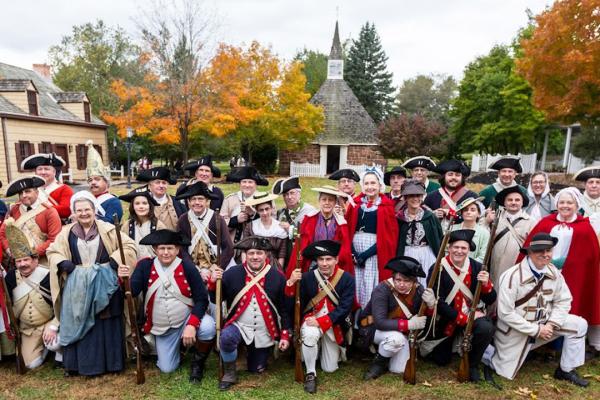The site of a former colonial port that thrived throughout the mid-18th century, most of the town was reportedly burned down by the British in 1776
The Abingdon Muster Grounds is a 9-acre park is the site where, in 1780, 400 Virginians joined other patriot militia from the western frontier in a...
The American Revolution Museum at Yorktown provides the origins of the nation’s founding, stretching from the early colonial period to the passing of...
The Arnold Tavern, constructed in the mid-18th century, served as Washington's headquarters from January - May 1777
A hidden gem in the borough of Princeton, the Bainbridge House was constructed in the mid-1760s and stands as a hallmark of colonial architecture...
In the days leading up the Battle of Lexington and Concord, James Barrett stored military supplies, including small cannons, from that were smuggled...
The Berkeley County Museum is located in historic Moncks Corner, South Carolina and contains Revolutionary stories and artifacts from around the...
During the British occupation of Charleston in 1781, these grounds were part of a British outpost to supply ammunition and provisions to patrolling...
Boone Hall was influential in the history of South Carolina. Explore the house and grounds of this Colonial Plantation, as well as a live presentation...

- parking
- accessible_parking
- wheelchair_accessible
- restrooms
- wifi

- restrooms
- wheelchair_accessible

- parking
- accessible_parking
- wheelchair_accessible
- restrooms

- parking
- accessible_parking
- wheelchair_accessible
- restrooms

- parking
- accessible_parking
- wheelchair_accessible
- pet_friendly

- parking
- accessible_parking
- wheelchair_accessible
- pet_friendly

- parking
- accessible_parking
- wheelchair_accessible
- restrooms
- wifi

- parking
- accessible_parking
- wheelchair_accessible
- restrooms
- wifi

- parking
- accessible_parking
- wheelchair_accessible

- parking
- accessible_parking
- restrooms
- pet_friendly

- parking
- accessible_parking
- wheelchair_accessible
- restrooms

- parking
- accessible_parking
- wheelchair_accessible
- restrooms
- wifi

- parking
- accessible_parking
- wheelchair_accessible
- restrooms
- wifi

- parking
- restrooms
- wheelchair_accessible
Liberty Trail History Makers
The Revolutionary War was a war unlike any other — one of ideas and ideals, that shaped “the course of human events. Explore the history and personalities from this pivotal time in American history.Overshadowed by Paul Revere famous midnight ride, Dawes also rode through the night on April 18, 1775, warning of the British march to Concord. He escaped capture and later served in the Revolutionary War.
John Glover, a skilled fisherman and merchant from Marblehead, Massachusetts, played a crucial role in the American Revolution as the commander of the 14th Continental Regiment, known for their amphibious expertise, notably evacuating Washington's army at Long Island and famously crossing the Delaware River to Trenton.
Christopher Greene, a Rhode Island militia leader and cousin of Maj. Gen. Nathanael Greene, served with distinction during the American Revolution, including defending Fort Mercer and commanding the 1st Rhode Island Regiment. He was killed in action during a 1781 battle at Pines Bridge, remembered for his valor and the role of Black soldiers in his regiment.
Responsible for coining "Give me liberty or give me death!" Patrick Henry stood as one of the staunchest defenders of American independence in Virginia.


